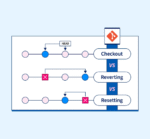The skill that is most needed today and, in fact, very lucrative, is web development. Isn’t the best part of it that you don’t need a computer science degree? Whether you’re a total beginner or switching careers, this guide will help you learn JavaScript, learn coding, and build real-world web projects from scratch.
Let’s see how you can go from not knowing anything about web development to becoming one of the leading developers, using the greatest tool of the internet: JavaScript.
What is JavaScript?
JavaScript is a high-level interpreted programming language that enables the development of interactive and dynamic websites and web applications. It is one of the three core technologies alongside HTML and CSS that make up the web.
HTML structures content; CSS styles it; and JavaScript makes the website live. Forms validation, dynamic content, sliders, pop-up windows, real-time data, even full applications—all can be easily done in JavaScript.
Why JavaScript is different:
- Can run directly in the browser with no further setup
- Compatible with major browsers
- Work both front-end and back-end (thanks to Node.js)
- It is used by many giant technology companies like Google, Facebook, and Netflix.
Whether you’re adding animations, handling user inputs, or building full-stack apps, JavaScript is your ultimate tool.
Why Learn JavaScript First?
If you want to learn JavaScript, web development is where you should start after HTML and CSS. This dynamic language is very versatile; it is beginner-friendly, and immediately applicable in real life.
Key benefits:
- Job Availability: Learn JavaScript online is one of the top skills globally required for any tech job.
- Community Help: Huge developer community, tons of tutorials, forums, and tools.
- Speed to Market: Learn once, use everywhere: front-end, back-end, mobile apps, even games.
Step-by-Step Roadmap: Learn to Code & Master JavaScript
1. Start with the Basics
Before you jump into JavaScript, learn how websites are built with HTML and CSS. After getting a handle on structure and design, it’s time to pick up JavaScript.
Start with:
- Variables and Data Types
- Functions and Loops
- Conditional Statements
- Arrays and Objects
Use sites like:
2. Build Projects (Practice Makes Perfect)
The fastest way to learn to code is by building.
Start with beginner projects:
- Calculator
- To-Do List
- Quiz App
- Weather App using an API
Then move to advanced:
- Real-time chat app (with Firebase)
- E-commerce frontend
- Portfolio website
By building real projects, you move from “just watching” to “truly learning.”
3. Explore DOM and Events
In order to build interactive web pages, learn about the Document Object Model (DOM) and how JavaScript interacts with HTML elements:
Key topics:
- Selecting elements
- Handling events (click, input, etc.)
- Updating content dynamically
4. Learn a Framework (React.js)
As soon as you have mastered the basics, you can branch out into a front-end library like React.js. It’s the industry standard nowadays for building modern UIs and single-page applications.
5. Go Full-Stack (Optional but Powerful)
If you’re serious about building complete apps, explore:
- Node.js for back-end
- Express.js for servers
- MongoDB for databases
You’ll be able to build full-stack applications using just JavaScript — a major advantage!

Where to Begin Your Journey Online
| Platform | Type | Best For |
| freeCodeCamp | Interactive lessons | Beginners |
| Udemy | Video courses | Structured learning paths |
| JavaScript.info | In-depth tutorials | Deep understanding |
| Coursera | Guided projects | University-level instruction |
| YouTube (Traversy Media, Dev Ed) | Free tutorials | Visual learners |
Tips to Succeed While Learning JavaScript Online
- Stay Consistent: Practice coding daily, even for just 30 minutes.
- Join Communities: Reddit, Stack Overflow, Discord channels for support.
- Make a GitHub Profile: Host your code and projects to show recruiters.
- Build a Portfolio Website: Showcase what you’ve built.
Conclusion
You don’t need a fancy degree to become a web developer in 2025. With dedication, consistency, and the right guidance, you can go from zero to hero in a matter of months. By choosing to learn JavaScript, take a JavaScript online course, and practice coding regularly, you’ll open the doors to freelance work, remote jobs, and full-time opportunities. Now is the best time to learn JavaScript to code and shape your future — all from your laptop, all on your own terms.








